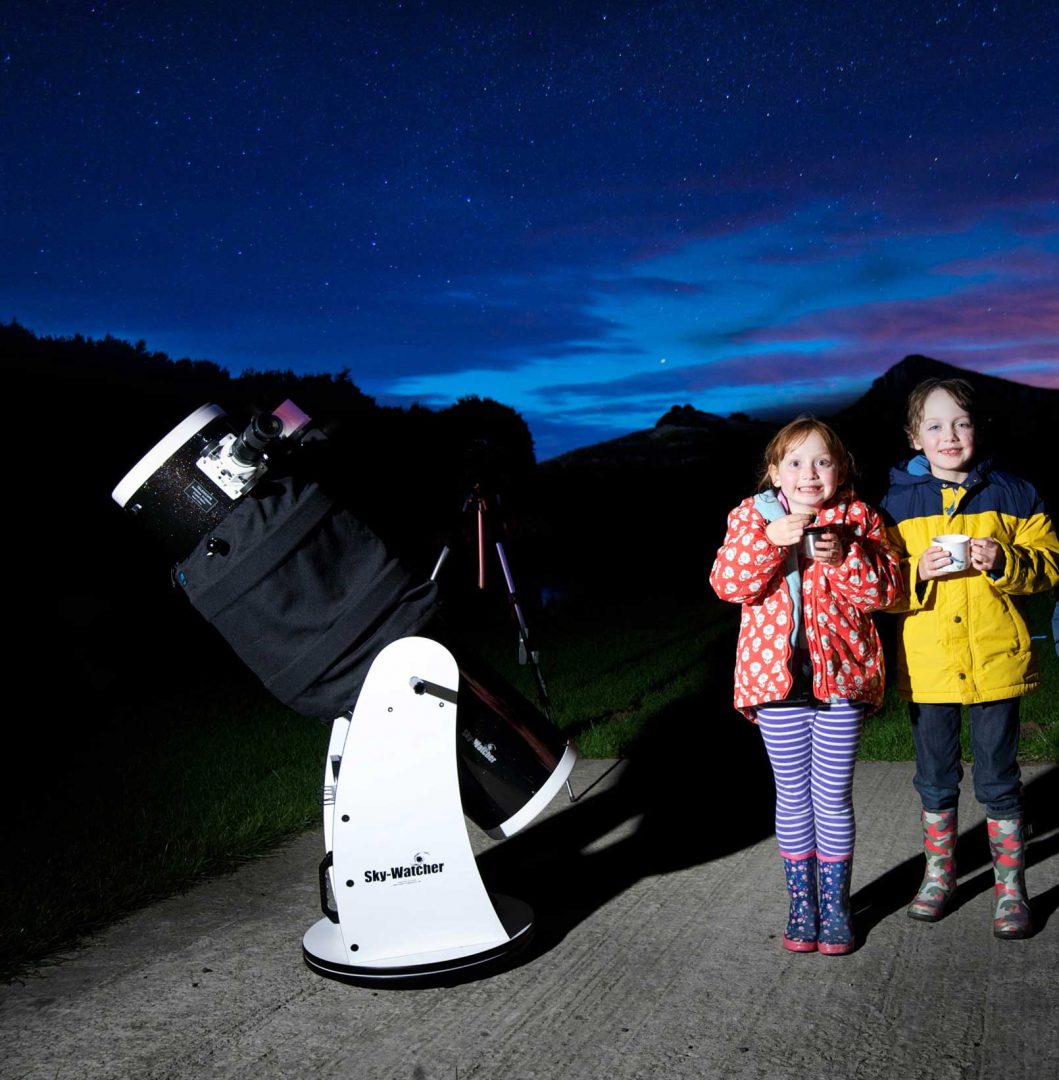Star Count 2020: connecting more people with starry skies

21 February 2020
This February, CPRE, the countryside charity, invites everyone to join in with Star Count 2020: a fun and easy way to enjoy the wonders of the universe. Simply by counting how many stars they can see in the Orion constellation on one night between 21 and 28 February, those taking part will help map the best and worst places to see the awesome sight of a star-filled night sky.
Throughout history, people have gazed up at magical starry night skies and used the cosmos to navigate. Looking at the stars gives us a sense of tranquillity rarely experienced in today’s frantic lives. Seeing dark skies full of stars is something we associate with the countryside and with reconnecting with the natural world. However, places to view these spellbinding sights are becoming harder to find – even in the countryside.
The 2019 Star Count results showed us that light pollution, often caused by the glow and glare from outdoor household and sports lighting, is making beautiful starry skies a rare sight for many of us. Just 2% of people who took part in last year’s Star Count told us that they were viewing a truly dark sky.
Emma Marrington, CPRE’s starry skies expert, said:
‘A starry night sky is one of the most magical sights the countryside can offer, connecting people to such an important part of our natural heritage. But many people don’t get to experience this beauty due to light pollution. We want to get people out counting the stars and helping to research these views for us and future generations to enjoy!
‘As well as preventing us from seeing the stars and wonders of our Milky Way galaxy, the Northern Lights, and meteors (shooting stars), light pollution has serious impacts. It disrupts the natural behaviour of wildlife and can be harmful for our health. It’s also a waste of energy, at a time when many people are trying to live more sustainably.
‘Using the results from the annual Star Count, CPRE will lobby the government and local authorities to tackle light pollution and highlight which dark sky areas need to be enhanced and protected by strong policies.’
CPRE’s Star Count is supported by the British Astronomical Association’s Commission for Dark Skies (CfDS).
Expert astronomer Bob Mizon from the CfDS said: ‘As well as being a wonderful opportunity to get outdoors and enjoy the night sky, Star Count gives us some really useful information. We’re hoping many more people will join in this year and give us the best map ever.’
To take part, star counters are asked to choose a clear night between Friday 21 and Friday 28 February. During this time the moon is less bright, making it easier to carry out a cosmic census. Without using a telescope of binoculars, people can then count the stars within the rectangle shape formed by Orion, except the four stars on the outer corners, then submit their results at www.cpre.org.uk/starcount.
Please call our Media Relations Lead, Jamie Wyver, on 020 7981 2827, or email JamieW@cpre.org.uk for further information.
Notes to editors
The British Astronomical Association is Britain’s largest astronomical organisation, with thousands of members nationwide. Its Campaign for Dark Skies was founded in 1989, and aims to ensure quality lighting in the UK.
CPRE, the countryside charity (formerly the Campaign to Protect Rural England), campaigns to promote, enhance and protect the countryside for everyone’s benefit, wherever they live. With a local CPRE in every county, we work with communities, businesses and government to find positive and lasting ways to help the countryside thrive – today and for generations to come.



